Will America's Anti-Obesity Craze Lead To A Food Revolution
It's hardly a secret that the US - the fattest nation on earth excluding a handful of islands in the Pacific - has an obesity problem. That, and the adverse health consequences of all this pervasive fatness, is the bad news which has ballooned US medicare/medicaid payments, one of the key factors behind the explosion in US shadow (off-balance sheet) debt into the $100+ trillion ballpark. The good news is that a handful of revolutionary new GLP-1 based weight-loss drugs courtesy of Novo Nordisk and Eli Lilly - which lead to dramatic cutting of excess pounds by way of substantial appetite reduction- may result in a dramatic reversal in this dismal trend (at least for those Americans who can afford the expensive drugs, which come with a steep price of ~$1,000 per month).
Of course, with the US food industry having itself turned fat and lazy, comfortable in assuming that nothing will ever change with America's infatuation with fast food, greasy burgers and fatty and carby junk food, even the smallest deviation could have devastating consequences for a food market that us valued at a little under $1 trillion per year in 2022.
One attempt to quantify the impact of this new weight-loss revolution on the food industry, and weed out winner from losers, comes from Morgan Stanley, which on Friday published a 60-page report titled "Food Meets Pharma: Downsizing Demand: Obesity Medications’ Impact on the Food Ecosystem" (available to pro subs), and which finds that over the long-term the US may see a substantial decline in calorie consumption (vs baseline) leading to steep losses for those companies that seek to profit from US obesity trends.
Below we excerpt the key highlights from the report, starting with the catalyst: the dramatic weight loss resulting from a consistent regime of GLP-1 drugs like Wegovy, Ozempic, Mounjaro and - coming soon - Retatrutide.
These drugs bring about meaningful weight loss through a 20-30% reduction in daily calorie intake.
One problem is that for many (obese) Americans, these drugs remain unaffordable, with just half of patients fully covered by health insurance.
Morgan Stanley then forecasts the big picture impact on the US population an finds a reduction of up to 1.7% (vs baseline) in calories consumed in the bull case.
Not surprisingly, MS found a more pronounced impact on certain food categories among those on the weight-loss drugs.
Also not surprising, the biggest losers appear to be fast food and pizza restaurants...
... confections, cookies and salty snacks...
... as well as makers of sugary drinks and snacks.
The bank then summarizes the impact of the weight-loss craze in the following matrix which look at the winners and losers across every category, from Packaged foods and restaurants, to beverages and food retail.
More in the full report available to professional subs in the usual place.
https://ift.tt/vJaFxpQ
from ZeroHedge News https://ift.tt/vJaFxpQ
via IFTTT




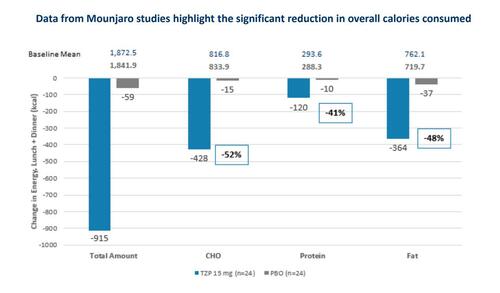
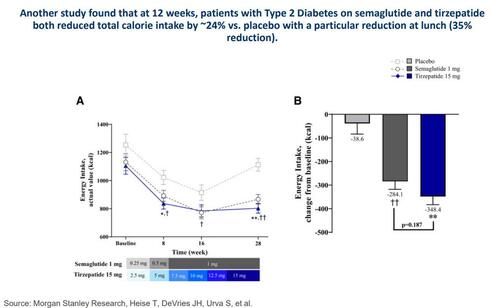

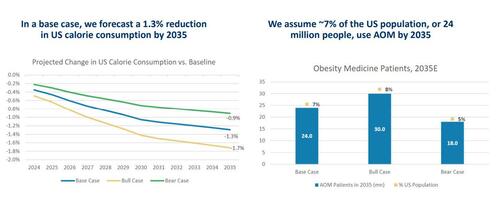
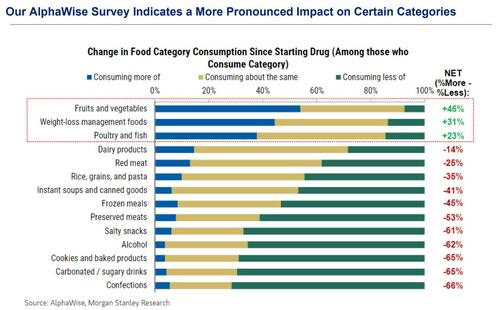
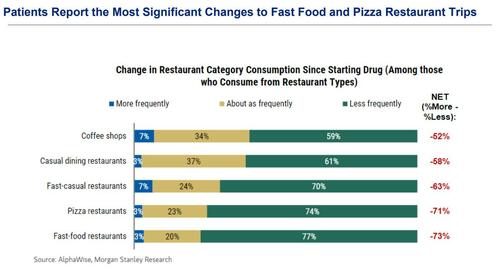
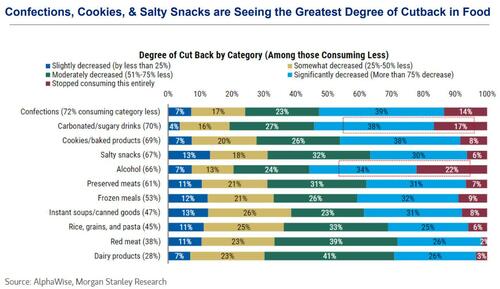
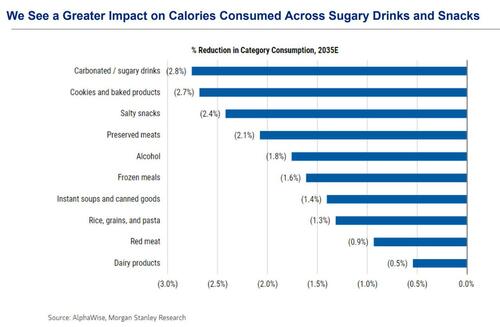



0 comments
Post a Comment